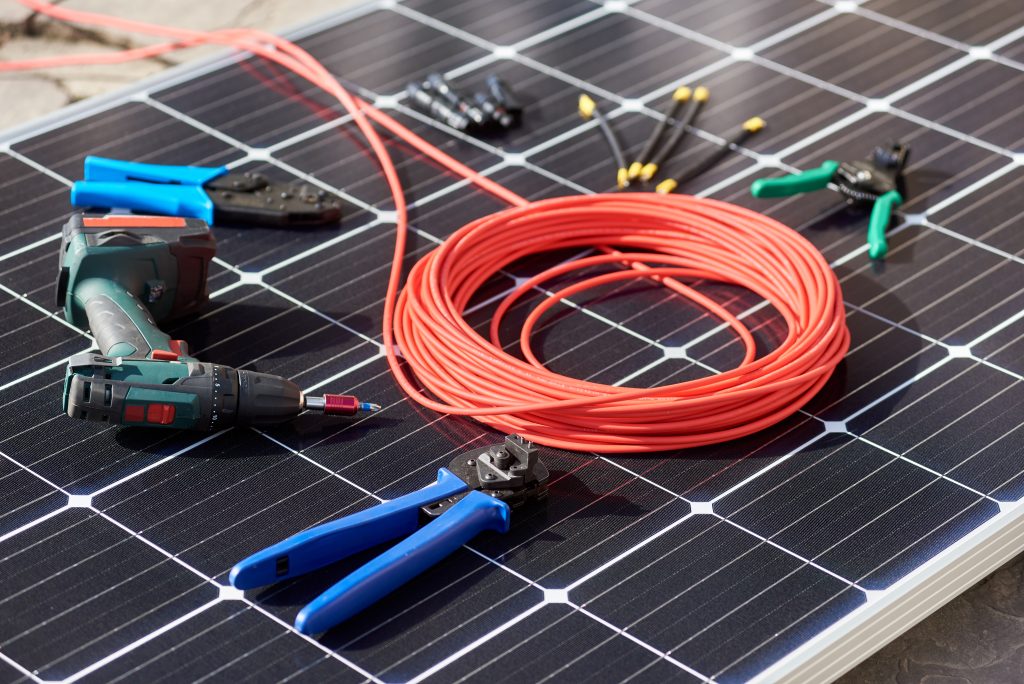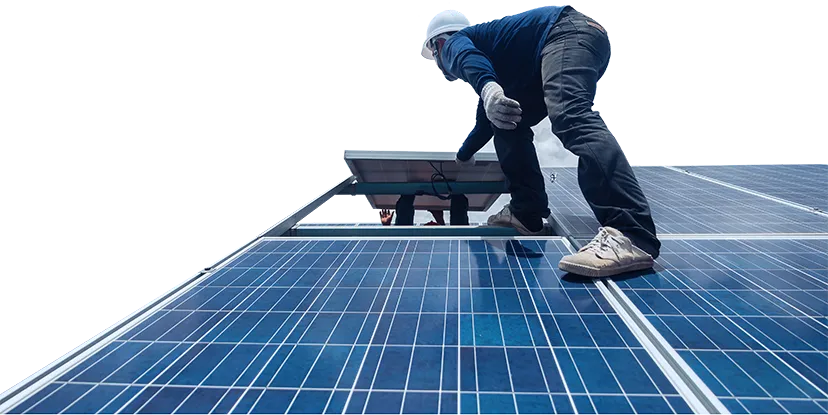DIY Off-Grid Solar Kits
DIY off-grid solar solutions offer an exciting opportunity for homeowners and businesses to embrace clean, sustainable energy without relying on the grid. With increasing demand for energy independence, off-grid solar systems are designed to meet your specific power needs, whether you’re located in remote areas or simply want to reduce your reliance on traditional energy sources. These systems typically include solar panels, inverters, charge controllers, and batteries, allowing you to generate and store electricity efficiently. For those who enjoy hands-on projects, DIY kits provide an affordable and customizable option for creating your own solar-powered setup. With the right tools, knowledge, and preparation, you can set up a reliable, eco-friendly energy solution that works for your home or business, all while reducing utility costs and minimizing your carbon footprint.
Why DIY Solar in Arizona?
Arizona’s abundant sunlight and incentives make it a hotspot for solar adoption. DIY solar systems can reduce upfront costs and help residents achieve energy independence, though professional installations may be better for large-scale applications due to efficiency and warranty protections.What is DIY Solar?
DIY solar refers to the process of installing your own solar power system without professional assistance. It involves selecting, designing, and installing components like solar panels, inverters, and batteries. DIY solar projects are typically smaller-scale installations suited for off-grid setups, such as powering RVs, boats, or small homes. While feasible, it’s less common to use DIY methods for grid-connected home systems due to complexity and safety concerns.How Does DIY Solar Work?
DIY solar projects begin with determining energy needs, followed by selecting suitable components like panels and inverters. Panels collect sunlight and convert it to electricity (DC), which is then converted to usable power (AC) by the inverter. Batteries store surplus energy for later use. Installation typically involves mounting the panels, wiring the components, and connecting the system to devices or a local grid for off-grid systems.Improvements in DIY Solar Technology
Advancements in DIY solar have made it more accessible:- Better Efficiency: Panels now have higher energy conversion rates.
- Battery Innovation: Modern batteries, such as lithium-ion, offer greater energy density and longevity.
- Simplified Kits: Pre-packaged kits provide plug-and-play solutions for easier installations.
- Monitoring Tools: Apps and smart systems allow for real-time tracking of energy production and consumption.
Where Can DIY Solar Be Used?
DIY solar is ideal for:- Off-Grid Locations: Cabins, boats, and RVs.
- Emergency Power: Backup solutions during outages.
- Supplementary Systems: Reducing grid reliance by powering select appliances.
Popular DIY Solar Kits and Batteries in Arizona
In Arizona, top DIY solar kits include:
Renogy Solar Kits: Known for affordability and reliability, especially for RVs and small homes.
Eco-Worthy Solar Kits: Popular for their versatility in off-grid applications.
Bluetti Power Stations: Portable systems paired with solar panels.
For batteries, the most recommended options are:
Tesla Powerwall: Despite being professional-grade, it’s increasingly paired with DIY projects.
Battle Born Batteries: Lithium-ion options suited for off-grid systems due to durability and performance.

DIY Solar Kits: A Cost-Effective and Sustainable Solution
DIY solar kits are an excellent way for homeowners and businesses to take control of their energy needs while reducing upfront costs. These kits typically include solar panels, inverters, mounting hardware, and wiring, all of which can be installed by the user with a bit of guidance. Over the past few years, DIY solar technology has improved significantly, making it easier for non-professionals to set up their own solar systems. These kits can provide power for homes, cabins, RVs, or even small businesses, offering a sustainable and affordable alternative to traditional power sources.
One of the main advantages of DIY solar kits is the flexibility they offer. Users can scale their system based on their energy needs. Whether you want to power a few appliances or your entire home, there’s a range of kit sizes to meet different requirements. Additionally, the kits are often designed to be modular, allowing you to expand your system over time as your energy needs grow. The rise in available online resources and solar installation guides has also made the process more accessible, giving DIY enthusiasts the confidence to tackle solar installations themselves.
Benefits of DIY Solar Kits
The most obvious benefit of DIY solar kits is cost savings. By installing the system yourself, you can save on labor costs that are typically associated with professional installation. Moreover, many DIY kits come with all the necessary components, so there’s no need for additional purchases. For people looking to go off-grid, DIY solar kits provide an easy and affordable solution, particularly when combined with off-grid battery systems.
Another benefit is the environmental impact. By generating your own solar power, you reduce your reliance on fossil fuels, which lowers your carbon footprint. The kits also typically feature high-efficiency solar panels that maximize the amount of power you can generate, which is particularly beneficial in sunny states like Arizona.
Challenges and Considerations
While DIY solar kits are an attractive option, they do require some technical knowledge. Installing a solar system involves electrical work, mounting panels, and possibly dealing with local building codes and permits. For some, this can be a challenge, especially when dealing with complex systems. That’s why it’s essential to carefully follow instructions and, if necessary, seek professional advice for aspects of the installation that may seem too complicated.
Additionally, not all DIY kits are equal. It’s essential to research the components of any kit you’re considering, as low-quality components can lead to inefficiencies and costly repairs down the line. It’s also important to verify that the kit you’re purchasing is compatible with your location, ensuring that it can withstand weather conditions and provide sufficient power for your needs.
Popular DIY Solar Kits
Some of the most popular DIY solar kits on the market include brands like Renogy, GoPower, and AcoPower. These companies offer a variety of solar kits that cater to different needs, from small off-grid setups to larger systems capable of powering a home. Renogy, for instance, is known for its high-efficiency solar panels and easy-to-use mounting systems, while GoPower is particularly favored for RV solar kits.
As the DIY solar market continues to grow, so do the options available to consumers. The latest advancements include solar kits with smart technology, allowing users to monitor energy production and system performance remotely. These technologies make it even easier to track your energy use and optimize your solar setup.



